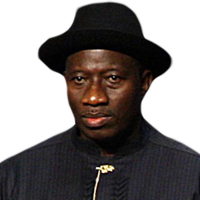In the glare of global anticipation, and despite a botched first attempt, Nigeria conducted presidential and national assembly elections that have been largely viewed by domestic and international observers as fair and free. This is a significant achievement compared to the last three marred attempts. But deadly post-election riots in the north have cast a shadow over the balloting.
Late on Monday, Attahiru Jega, head of the Independent National Election Commission (INEC), declared incumbent President Goodluck Jonathan the winner after he received 22.5 million votes and more than 25 percent of the vote in more than 24 of the country's 36 states. Immediately following the two election rounds -- and prior to the recent wave of violence -- commentators rushed to declare Nigeria on solid footing to soon join the ranks of full-fledged electoral democracies.
Notwithstanding the subsequent bloodshed, Nigerians had reason to bask in a moment of national celebration over the real opportunity provided to citizens to exercise their right to vote. Last year's postponement of elections, last-minute changes to the electoral law and constitution, difficulties with the voter-registration process and the threat to an informal North-South power-sharing agreement posed by Jonathan's candidacy had left many wondering whether Nigeria would arrive at this point.

